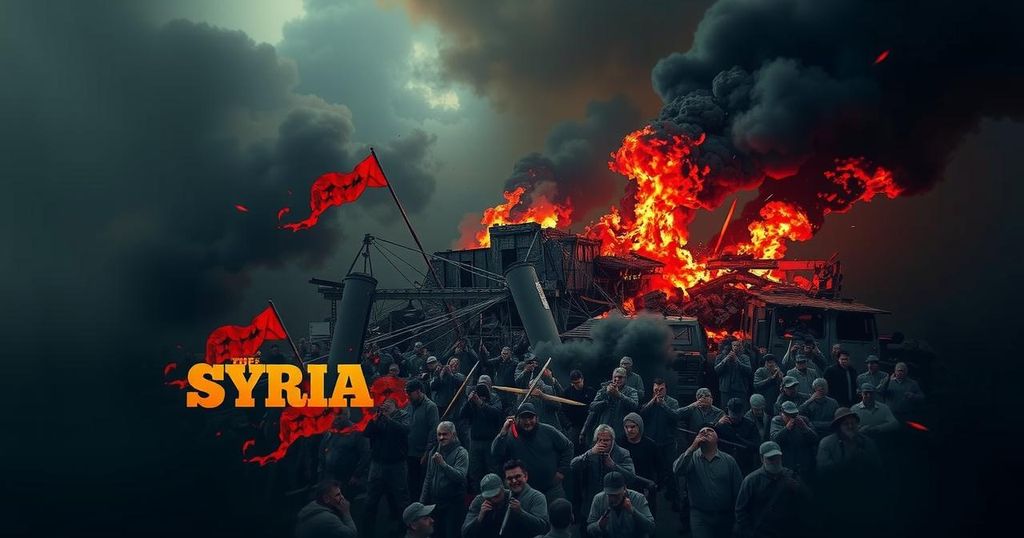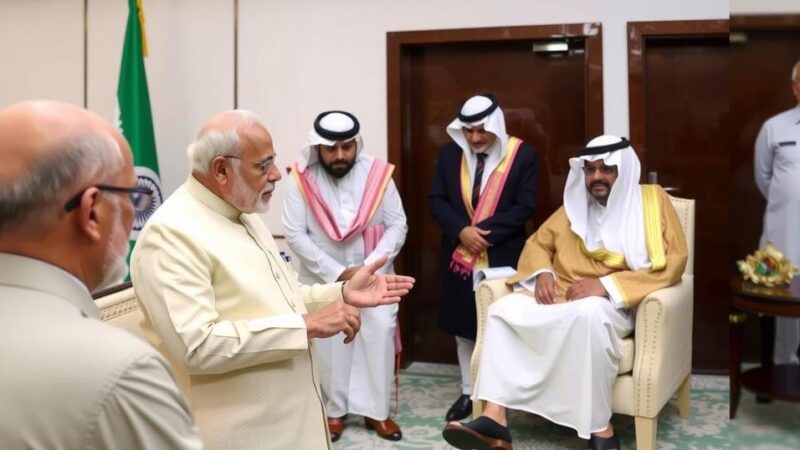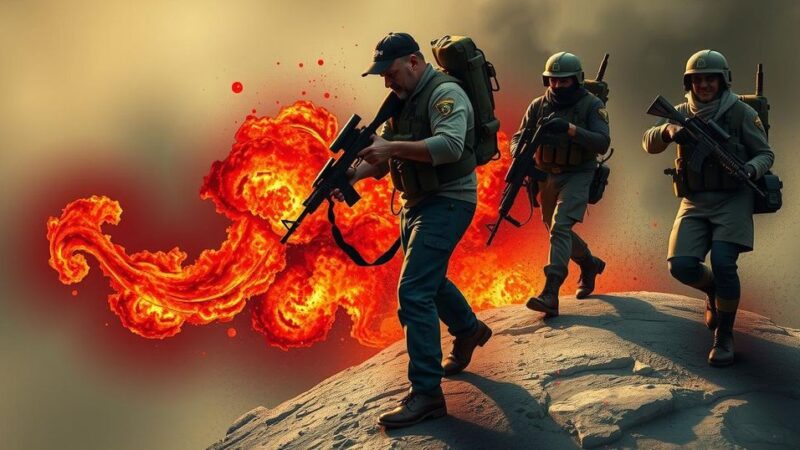Syria’s civil war has intensified following a significant rebel offensive that captured Aleppo and surrounding areas. As external supporters like Russia and Iran face internal challenges, the Syrian government aims to regain control. The conflict involves multiple actors, including Turkish-backed insurgents and U.S.-supported Kurdish forces, leading to complex military engagements and geopolitical tensions.
Syria’s ongoing civil war has recently garnered renewed international interest following a surprising resurgence of rebel forces, which have captured critical territory in Aleppo and surrounding towns. This unexpected offensive has occurred during a period when several key external players, including Russia and Iran, have faced challenges that have diminished their influence in the region. In response, Syrian and Russian forces have intensified airstrikes to quell the insurgency, leading to significant casualties.
Since its inception in 2011, the civil war has seen a multi-faceted conflict involving foreign interventions, with the U.S., Russia, and Iran maintaining military presences within the country. Despite the Syrian government holding control over key cities, the recent downfall of Aleppo represents a pivotal setback for President Bashar Assad’s administration.
The Syrian government remains reliant on support from Iranian military advisors and various proxy groups, which have historically bolstered its capabilities. However, the prominence of Hezbollah has waned due to recent conflicts with Israel that have diverted Iran’s attention. Concurrently, Russian military engagements have shifted focus towards its operations in Ukraine, complicating their ability to assist Assad effectively.
The rebel factions, predominantly led by the organization Hayat Tahrir al-Sham (HTS), have seized large swathes of territory. Previously associated with al-Qaida, HTS has adapted its public image, proclaiming a commitment to governance and pluralism while maintaining its militant operations. Other insurgent groups have joined their ranks, with Turkish support playing a critical role in numerous offensives, particularly against U.S.-backed Kurdish forces.
On the eastern front, the Kurdish-led Syrian Democratic Forces (SDF), also backed by the U.S., continue their anti-ISIS campaigns while maintaining territorial control. Approximately 900 American troops are stationed in this region to ensure stability and prevent a resurgence of extremist factions. This complex interplay of alliances and hostilities exemplifies the intricate dynamics within Syria’s civil conflict, underscoring the challenges faced by all parties involved as they navigate this volatile landscape.
The Syrian civil war has persisted for over a decade, originating from protests against President Bashar Assad’s regime in 2011. The conflict has evolved into a multifaceted war involving various domestic factions, foreign interventions, and complex geopolitical interests. Multiple foreign powers, including the United States, Russia, and Iran, are entrenched in the conflict, each backing different sides to achieve their strategic objectives. The situation intensified as insurgent groups began to regain ground in Aleppo, raising concerns over stability as external players grapple with their domestic challenges.
The resurgence of the insurgent offensive in Aleppo has reinvigorated the ongoing Syrian civil war, drawing attention back to the profound complexities of the conflict. As key powers such as Russia and Iran experience constraints on their military effectiveness, rebel factions are seizing the opportunity to expand their territorial claims. The dynamics involving the Syrian government, opposition forces, and external actors illustrate a challenging and multifaceted struggle that continues to evolve, with significant implications for regional stability and international relations.
Original Source: apnews.com







